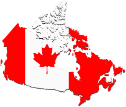First Nations Gaming Act
 First Nations refers to a group of people who identify themselves to the nation to which they belong. Aboriginal people in Canada make up the Mohawk, Cree, Oneida, and other native tribes or nations. The First Nations Gaming Act was enacted into Canadian law in 1995 to give aboriginal tribes and their people legislation to allow for the establishment of institutions that will support the gaming industry.
First Nations refers to a group of people who identify themselves to the nation to which they belong. Aboriginal people in Canada make up the Mohawk, Cree, Oneida, and other native tribes or nations. The First Nations Gaming Act was enacted into Canadian law in 1995 to give aboriginal tribes and their people legislation to allow for the establishment of institutions that will support the gaming industry.
The act also establishes several commissions, trust funds and other entities to regulate and develop guidelines to further the provisions of the First Nations Gaming Act. This page was constructed to deliver accurate information about the First Nations Gaming Act, what it implies and the regulations set forth by the government and various gambling regulations in Canada.
White Bear Casino Precedent
In 1993, the Bear Claw Casino was erected on the White Bear First Nations land near Saskatchewan, Canada. It was the first casino operated by a native group to open in Saskatchewan. It originally opened in the clubhouse of the White Bear Golf Course but has since relocated. This casino was opened by the First Nations without the permission of the provincial government.
The casino was soon the centerpiece of a legal battle and ultimately shut down by the Royal Canadian Mounted Police (RCMP). Soon after the shutdown the First Nations and the province of Saskatchewan began negotiating and the Saskatchewan Indian Gaming Authority (SIGA) was established.
Today the casino has moved into its own building and has been re-named the Bear Claw Casino & Hotel.
Saskatchewan Indian Gaming Authority
The Saskatchewan Indian Gaming Authority (SIGA) is a regulatory agency that currently operates 6 gaming entertainment destinations in the Saskatchewan province.
- Bear Claw Casino & Hotel
- Dakota Dunes Casino
- Gold Eagle Casino
- Living Sky Casino
- Northern Lights Casino
- Painted Hand Casino
The SIGA strives to strengthen lives of the First Nations people by providing employment, supporting economic growth and by maintaining positive community relations. 100% of the profits from their casinos go back into the province and its communities. To date over $1 billion in revenue has been generated for the province.
The SIGA currently employs over 1,900 people and is responsible for the management, operating and auditing systems for their casinos. They also help maintain the conduct of casino activities while ensuring maintenance of the gaming equipment. In addition, the SIGA provides security and surveillance for their casinos.
Saskatchewan Indian Gaming Licensing
![]() An entity established by the First Nations Gaming Act to issues licensing for brick-and-mortar casinos. The Act states that the entity will be a five-member subcommittee of the Gaming Commission. The development of standards, fees, and protocols for operating a charitable lottery on a reserve will be a task of the subcommittee.
An entity established by the First Nations Gaming Act to issues licensing for brick-and-mortar casinos. The Act states that the entity will be a five-member subcommittee of the Gaming Commission. The development of standards, fees, and protocols for operating a charitable lottery on a reserve will be a task of the subcommittee.
The subcommittee will also be responsible for registering gaming employees and event suppliers.
First Nations Online Gaming
The First Nations are seeking to enter the online gaming market and requesting an overhaul of the First Nations gaming legislation. The Canadian Criminal Code hasn’t been updated since 1985 and is outdated when it comes to online gaming and First Nations gaming. The First Nations are seeking to host a national aboriginal online gaming system to reach smaller markets that are unfitted for land-based casinos.
Many people of the First Nations claim that there is a casino land-based bias and that a regulated First Nations internet platform would remove the bias and allow First Nations to benefit from across the country. As the Criminal Code stands it is currently blocking First Nations from tapping into the full economic benefits from the gaming industry.
The First Nations Addictions And Rehabilitation Foundation
In addition to the gaming commission and the gaming authority, the First Nations Gaming Act mandates that an addiction and rehabilitation fund is established. The fund will be established as the First Nations Addiction and Rehabilitation Foundation and will work in conjunction with existing agencies and charities to reiterate that the First Nations will have access to gambling prevention and treatment programs.
The Foundation will also be held responsible for developing partnerships and programs to provide funding for other charities which currently provide the First Nations with addiction prevention and treatment.
First Nations Trust Fund
The First Nations Gaming Act mandates that a trust fund is established. The fund is to be managed by a board of appointed trustees. The board consists of 5 members and a chairman from the membership of the Gaming Commission. The board is responsible for mandating and making payments to community projects that require funding. Some of the trust funds will be responsible for providing financial assistance to the following community services.
- Economic development
- Social development
- Justice initiatives
- Educational development
- Recreational facilities
- Senior and youth programs
- Cultural development
- Community infrastructure
- Health initiatives
- And more
